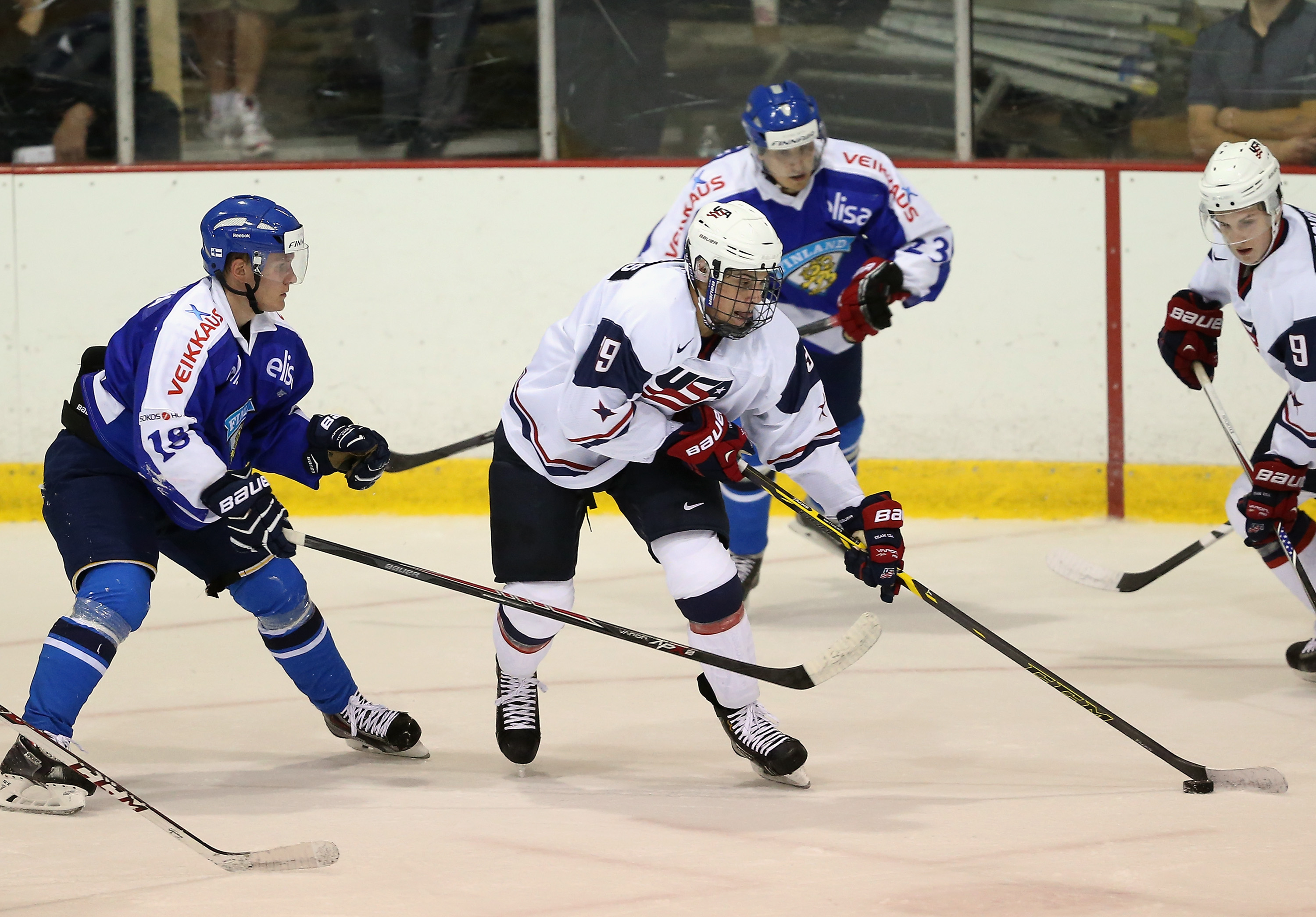Auston Matthews — the top-rated prospect of the 2016 NHL draft class — will play next season in Switzerland for the Zurich Lions.
Question: How will Auston Matthews’ free agent status be impacted by playing overseas?
Auston Matthews’ decision to bypass the junior and college hockey route is certainly unconventional. He’ll earn an estimated $400,000 next season and have the opportunity to play against professionals. His future coach in Zurich, Marc Crawford, has a lengthy NHL resume and Matthews could benefit from being out of the spotlight that followed 2015 top pick Connor McDavid over the last 18 months.
From an eligibility perspective, Matthews will still be funneled through the NHL entry draft system if he returns to North America next summer. But coming into the NHL from Europe means Matthews would theoretically be eligible to play in the American Hockey League immediately. Players drafted out of North America typically have to choose between staying with their junior/college team or making the jump straight to the NHL in their rookie season.
But what if Matthews doesn’t want to come through the entry draft, where a lottery ball will decide his fate and potentially his home for the next decade? Is there any way he can sidestep the draft altogether and come into the league as a free agent like older Europeans have done?
The short answer: No…unless he waits until the summer of 2020.
Even if Matthews were to insist he had no plans of playing in the NHL in the near future, some team would still take the gamble of drafting him to snag his rights.
Under CBA provisions, NHL teams retain the rights to players drafted at age 18 or 19 from clubs outside of North America (Matthews will turn 18 in September) through the fourth June 1 following draft selection.
For Matthews, that would mean his draft team would retain his rights until June 2, 2020. He could enter the NHL after that as an unrestricted free agent at age 22 on July 1, 2020. Unfortunately for Matthews — or any super-prospect considering this route — he wouldn’t be able to pitch his services to the highest bidder. The NHL’s entry-level compensation restrictions close almost all loopholes when it comes to sneaking into the league from overseas.
Matthews would be considered 22-years-old if he signed a UFA contract in the summer of 2020 and therefore subject to the standard terms of a two-year entry level deal. Base compensation for entry-level contracts is maxed out at $925,000 per season and potential performance bonuses cannot exceed $2.85 million.
[Related: How is Player Age Calculated?]
For Auston Matthews, the best path to the NHL out of Switzerland is still to follow in the footsteps of Sidney Crosby, who took the standard three-year entry level contract after being drafted. By age 22, Crosby was making $9 million.
And for NHL teams, your best chance of snagging Matthews is still to race to the bottom of the 2015-16 standings.
Note: Explanation and legal interpretation of the above is solely the opinion of the author and may not reflect all scenarios or actual CBA interpretation by NHL/NHLPA representatives. If you have a suggestion for improving this interpretation, please reach out via our Contact page.

